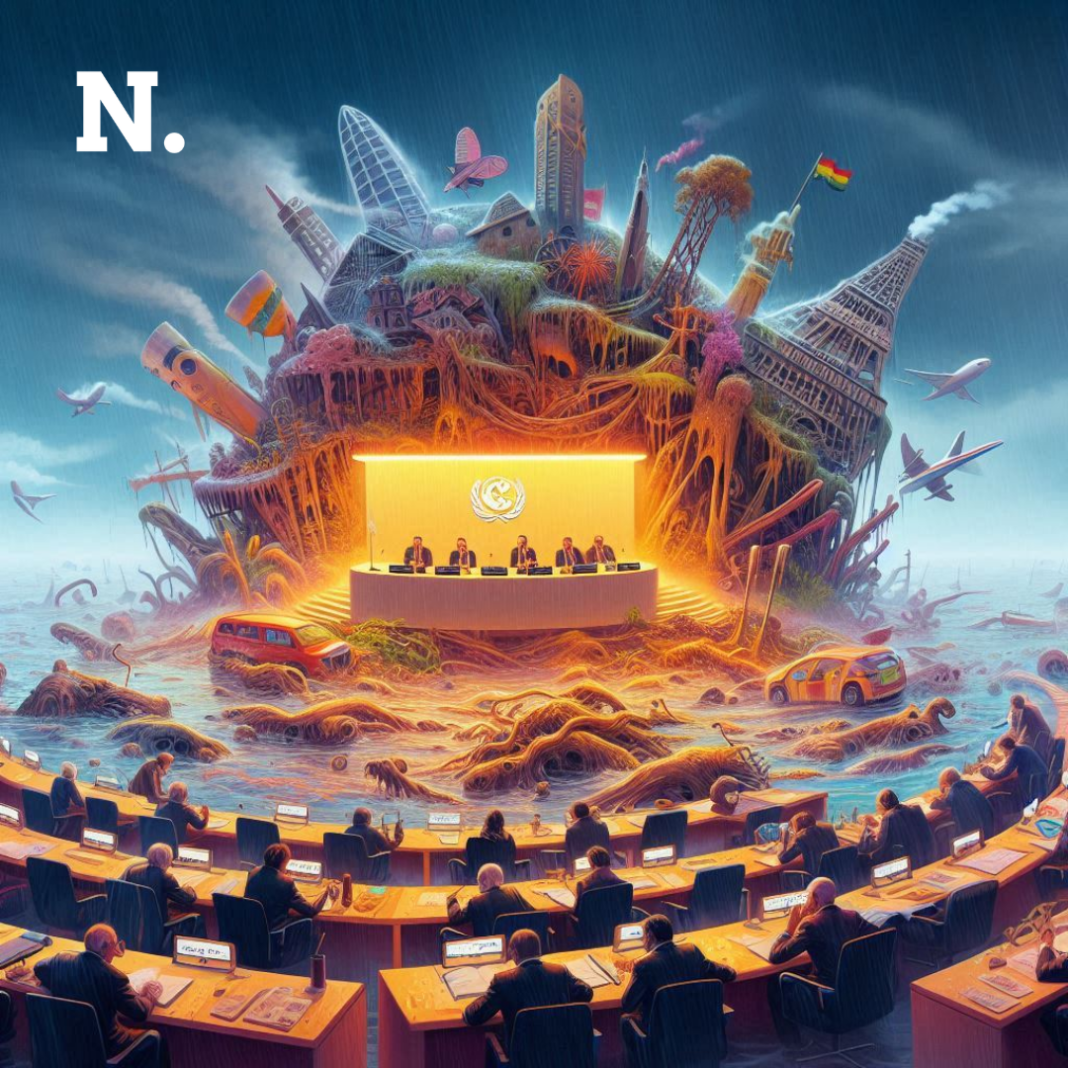Halfway through the two-week Bonn Climate Change Meeting, observers noted a lack of progress in defining a new collective quantified goal (NCQG), expected to shape discussions at the upcoming UN climate conference, COP29, in Baku, Azerbaijan.
US and Developing Countries Clash Over Climate Finance
The United States reiterated its stance that contributions to the new fund, intended to replace the existing $100 billion per year goal, should remain voluntary. In contrast, the Arab group, Cuba, and African nations called for specifying the quantum of the new goal. The agenda for COP29 this November includes negotiating a new financial target, starting from a base of $100 billion for the post-2025 period, to aid developing countries in transitioning to a low-carbon future.
Urgency for Controlling the Climate Change
The Climate Action Network issued an update on Monday emphasizing the urgent need for substantial progress at the UNFCCC climate negotiations. They issued a warning, saying that if nothing changed, the negotiations would soon become a “cesspit of inaction.”
Debates on NCQG and Its Implications on Climate
According to the Loss and Damage Collaboration, a climate policy group monitoring the negotiations, the US argued that the NCQG is separate from provisions under the United Nations Framework Convention on Climate Change (UNFCCC). By taking this stand, the Paris Agreement and the convention that require affluent countries to give developing countries climate financing are weakened. Experts noted that developed countries were pushing to expand the number of donors to include emerging economies while limiting beneficiaries to the least developed countries.
African Group’s Demands
The nations of Africa wanted clarification regarding the scope of the new financial objective. Egypt’s chief climate negotiator, Ambassador Mohamed Nasr, stated that the Africa group focused on the $1.3 trillion demand put forward by developing countries and how it would be delivered.
Continued Disagreements and Pressure over Climate
Avantika Goswami is the programme manager for climate change at the Centre For Science and Environment. She highlighted that by the end of the first week, there was still no convergence on an ambitious finance target. Multiple options remained on the table. Developed countries were making demands that appeared to be in bad faith. These demands included expanding the contributor base. Article 9 of the Paris Agreement clearly stipulates that finance must flow from developed to developing countries. Goswami emphasized the unity of the G77 in their demands. She stressed the need to scale up pressure in the second week. This is necessary to make progress ahead of COP29.
Criticism of Developed Nations
Harjeet Singh, a climate activist and observer at the Bonn negotiations, criticized the developed nations, particularly the US and Europe, for what he described as a moral and legal abdication. Singh stated that this was not just an evasion of responsibility but an act of profound immorality.
Emerging Differences Between Rich and Developing Nations
Regarding contributions to the NCQG, significant disparities between developed and poor nations resurfaced. During an Ad Hoc Work Programme (AHWP) of the UNFCCC held in Cartagena, Colombia, from April 23 to 26, the US reportedly stated that the NCQG was “voluntary” for those who chose to pay.
Call for Transparency
Prior to COP29 in Baku, parties were urged by UN Climate Chief Simon Stiell to submit their BTRs. Stiell emphasized that BTRs help illuminate progress. They assess the performance of the machinery. BTRs determine whether Paris Agreement goals are being reached. During his opening address in Bonn on Monday, Stiell noted that only two countries had submitted their BTRs. Andorra and Guyana were the only countries to have done so.
Importance of Biennial Transparency Reports
Stiell noted that the Alliance of Small Island States member Guyana has filed a BTR, making Andorra the first nation to do so ever last year. He stressed that preparing these reports was not merely about ticking a box. Countries would be better able to make educated decisions, set challenging objectives, and secure the funding needed to support them using the knowledge gathered from BTRs. For instance, Guyana’s report detailed progress in measuring the vast forests covering the country and the carbon they capture.
Requirements of the Enhanced Transparency
The Enhanced Transparency Framework requires parties to the Paris Agreement to produce biennial transparency reports every two years. Parties must submit the first report by December 31, 2024. These BTRs must include information on national inventory reports (NIR). They should report progress towards Nationally Determined Contributions (NDCs). The parties must detail policies and measures. They should cover climate change impacts and adaptation. BTRs must also report on levels of financial support. They need to include information on technology development and transfer. They should outline capacity-building support. BTRs must also identify capacity-building needs and areas for improvement.
Conclusion
The Bonn Climate Change Meeting highlights the complex and contentious negotiations surrounding climate finance. The outcome of the forthcoming COP29 summit in Baku will be critical in deciding the direction of global climate financing. The summit will also reveal the willingness of wealthier nations to assist developing nations. This assistance is crucial for their shift to a low-carbon future. Significant disagreements remain unsolved, adding to the importance of the summit. The need for transparency, unity, and concrete action remains paramount as the world moves closer to critical climate targets.





